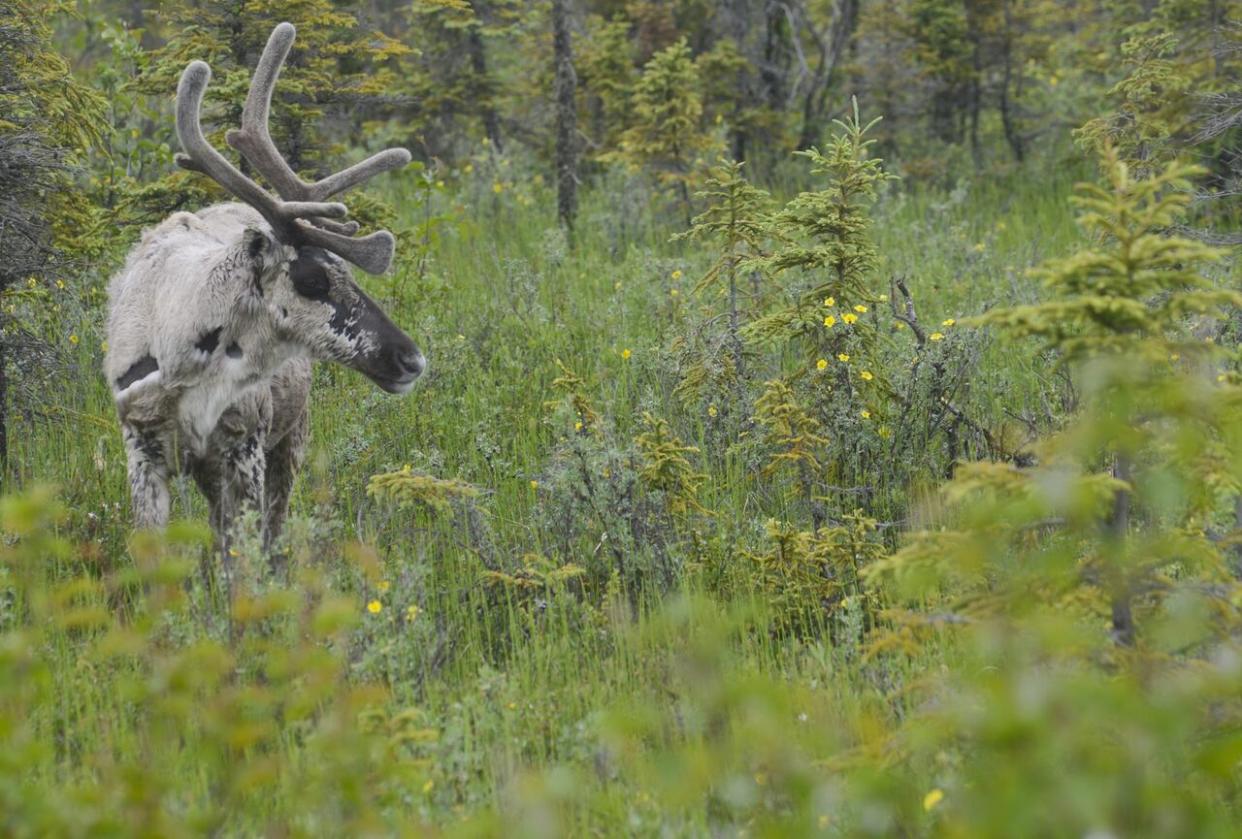Hunters call for transparency after recent changes to caribou and moose harvest rules

Several hunters are speaking out against the provincial government's recent changes to reduce caribou and moose hunting in northern British Columbia.
Hunting regulations are reviewed by the provincial government every two years and the move to cut the number of recreational and commercial caribou and moose hunters in B.C.'s northwest were announced on May 10. However, some hunters say it's not clear why the changes were made.
"I'm not enamoured by the [regulations], to put it lightly," said Richard Wale, a recreational hunter in Salmon Arm, about 110 kilometres east of Kamloops. "I really don't think they're going to address the issue that they need to address."
But Peter Lee, a spokesperson for the provincial Water, Land and Resource Stewardship Ministry, defended the move. The changes aim to support sustainable hunting now and for the long term, he said in an email to CBC News.
"Regulations for moose and caribou in the Northwest support advancing reconciliation through deeper collaboration, weaving of Indigenous knowledge and science to achieve shared objectives, and working together with hunters and the community," he said.
Under the most recent regulations, B.C. converted open-season caribou hunting zones in Skeena, in the province's northwest, and Omineca, in the central interior, to limited-entry hunting zones. It also made similar changes for moose in several parts of the province, including in the Okanagan, in the southern interior, and Skeena regions.
Limited-entry zones require hunters to enter a lottery for the rights to operate in each region.
Adam Ford, a wildlife restoration researcher at the University of British Columbia Okanagan campus, said the zones are one tool the provincial government can use to reduce the number of hunters in an area.
"They restrict how many boots are going to hit the ground in a hunting season," he said. "They can't affect how many people actually want to go hunting, even if they were successful in that lottery. Nor can they really affect how successful those individual hunters are."
Hunters calling for answers
Jesse Zeman, executive director of B.C. Wildlife Federation, a non-profit conservation organization, said hunters aren't the reason moose and caribou populations are dwindling.
"Our membership is incensed," Zeman said. "The province is not supporting British Columbians who go out and enjoy nature sustainably. To us, that is the very opposite approach of what should be going on."
He said the province based the decision on consultations instead of science, and that many stakeholders spoke out against the regulations.
The ministry's Lee said the province does incorporate harvest surveys, data from western science and Indigenous knowledge into its hunting regulations.
UBC's Ford said people are looking for transparency.
"I think it's important for bringing people together to solve problems that there's transparency around the motivation of those decisions."
He added the changes need to be accompanied by more wildlife monitoring.
"If the motivation [of these changes] is conservation, then I would like, as a scientist, investment in monitoring the populations to see if they are recovering," he said.
Years of regulations
The province is mandated to prioritize conservation and Indigenous peoples rights above recreational and commercial hunters. Members of First Nations still have a constitutional right to harvest wildlife for sustenance.
Lee said the government understands changes to hunting regulations can raise concerns and pointed out that in some areas restrictions have been lifted.
"They can affect individuals in many ways," he said. "When wildlife population objectives are being met or exceeded, we open new sustainable hunting opportunities."
In several parts of the Chilcotin, in the central interior, moose hunts were closed in 2018 due to wildfire. Now, the government has lifted those restrictions.
The latest regulations come two years after the province closed caribou hunting and made sweeping changes to moose hunting in the Peace region. According to B.C., the 2022 hunting regulations reduced the number of moose hunters and harvests in the province's northeast by half.
Back in Salmon Arm, Wale said he'd like to see the province restrict forestry and mining activities to preserve moose and caribou habitats.
Research partly funded by the province shows logging, road building, wildfires and climate change are primary drivers of habitat loss driving caribou toward extinction.
"I personally think that this is not gonna do much good," Wale said of the recent changes. "We are heading for total closures … By the time my grandson grows up, there won't be any hunting available for him."


